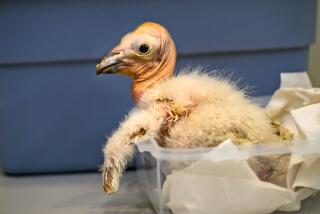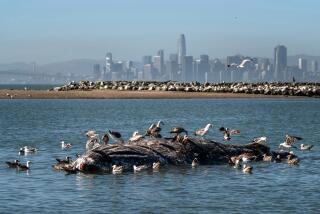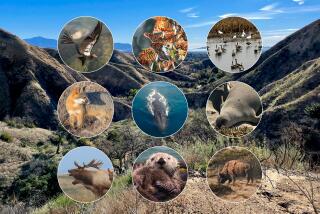Where to see sandhill cranes and dizzying flocks of snow geese? Five bird festivals in the West highlight these master migrators
Even snow geese leave home in winter. The noisy white birds that call the Arctic region home travel south to California and Mexico to find good nesting spots and good eats. The geese are among the millions of migrating birds that take to the sky along avian freeways across North America called flyways.
You don’t have to be a pro to enjoy the show. Bird festivals throughout the country offer field trips and workshops that highlight the best spots to see flocks of geese, cranes and other species on the wing.
California
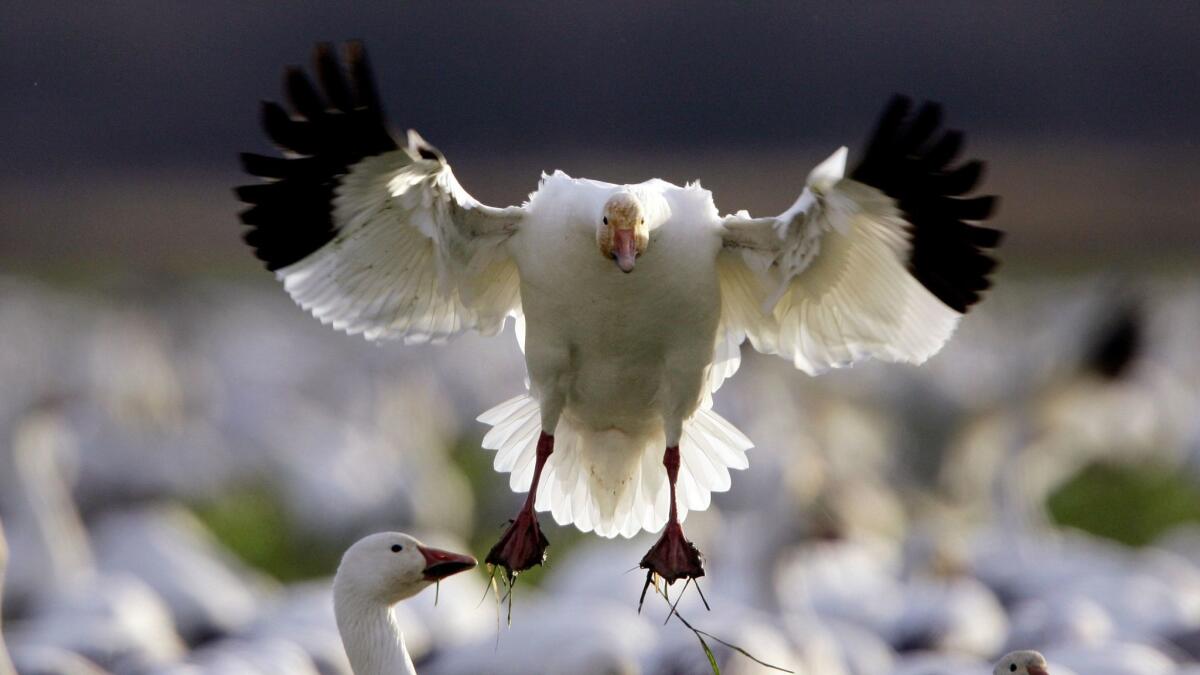
“Watching huge flocks of snow geese swirl down from the sky, amid a cacophony of honking, is a little like standing inside a snow globe,” says the Cornell Lab of Ornithology’s website.
You can see the large white birds with black tipped wings in the northern Sacramento Valley at the Snow Goose Festival of the Pacific Flyway from Jan. 24 to 28, which is based in Chico. It offers more than 75 field trips ($14 to $45; some are already sold out) for bird-watching tours to places such as the Colusa and National wildlife refuges. A free workshop will teach you how to tell the difference between snow geese, Ross’ geese and blue morphs. (11 a.m. Jan. 27). Info: Snow Goose Festival of the Pacific Flyway
Texas
Whooping cranes are a rarity. The tallest North American bird with white bodies and red caps numbered around 20 in the 1940s, according to the Cornell Lab. Their rebound has been northing short of remarkable, with up to 400 expected to land on the Gulf Coast around Port Aransas. The Whooping Crane Festival from Feb. 22 to 25 offers guided boat tours of the Aransas National Wildlife Refuge to see the cranes after their 2,500-mile-journey and other species. ($50 per person). Info: Whooping Crane Festival
Washington state
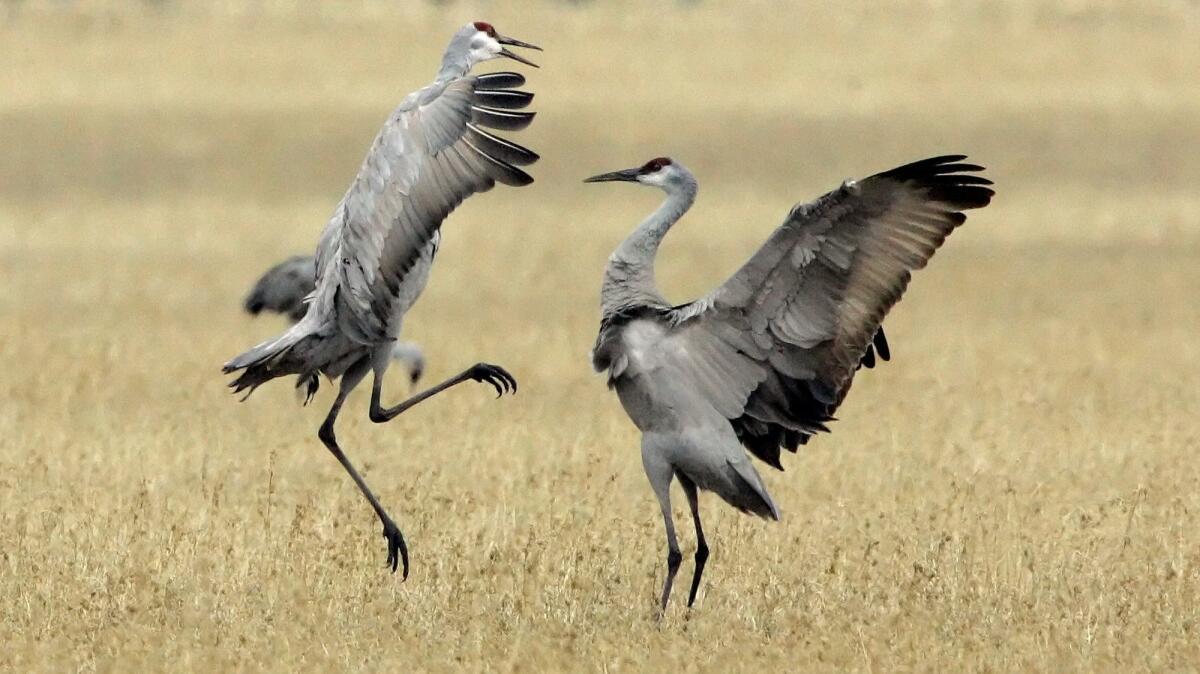
Sandhill cranes look a lot like whooping cranes, except with gray bodies and more plentiful numbers. They swoop through California wetlands and fields in January, usually at places such as Los Banos, Calif.
If you miss them, head to the Othello Sandhill Crane Festival in Othello, southeast of Seattle, from March 23 to 25. The festival offers tours of the Columbia National Wildlife Refuge to see the cranes. Boat birding tours ($65), farm tours ($25) and crane viewing tours to feeding sites when the birds are loudest ($14) are all part of the program. Info: Othello Sandhill Crane Festival
California
Marbled godwits are big-time travelers. The bird with a mottled brown back and long, upturned beak breeds in the middle of the U.S. and then winters on the coast. Godwit Days in Arcata from April 18 to 24 celebrates the shore birds with a free tour of Humboldt Bay National Wildlife Refuge (7:30 a.m. April 19), where you should see godwits plus Aleutian cackling geese and black brandts. While you’re there, don’t miss visiting the redwoods nearby. Info: Godwit Days
Utah
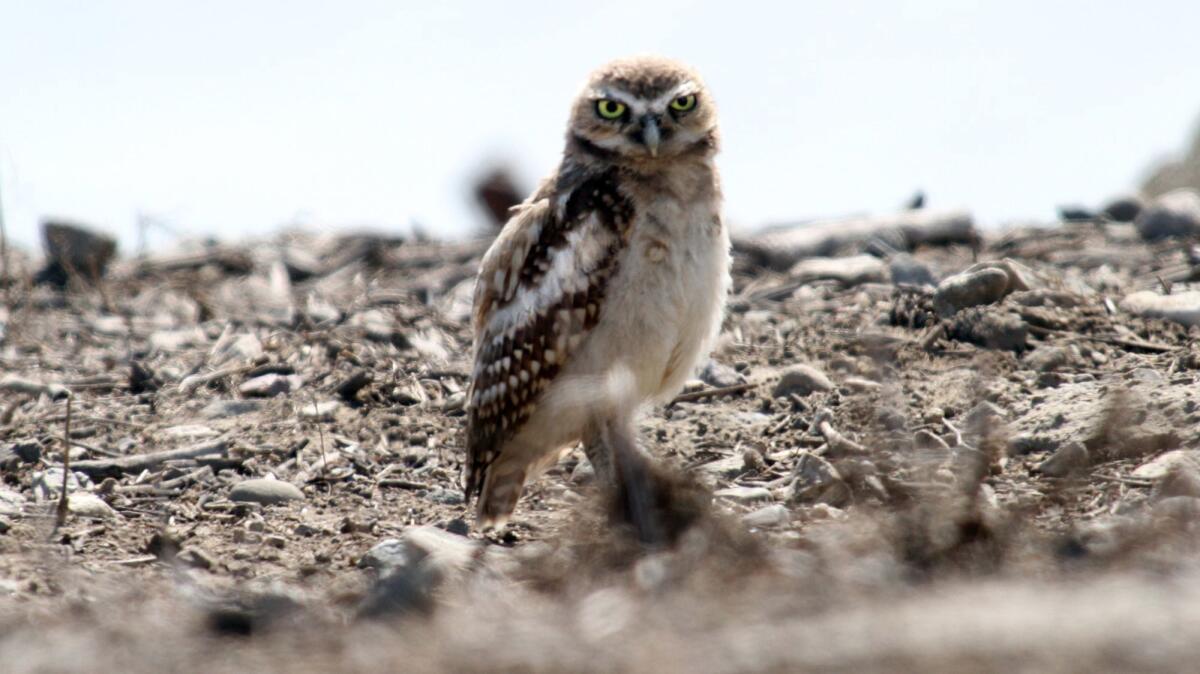
Burrowing owls aren’t really night owls. The sandy brown birds with large yellow eyes and long legs can be seen hunting close to the ground during daytime hours. They live underground in burrows (hence the name) and are one of the owls to see at the Great Salt Lake Bird Festival from May 17 to 21 based in Farmington, a 15-minute drive from the lake.
Field trips include an Owl Prowl ($35) to Antelope Island State Park to see burrowing owls as well as great horned, barn, long-eared and short-eared owls. You’ll also see bison on the island. The lake’s habitat draws raptors, shore birds and a good variety of smaller birds too. Info: Great Salt Lake Bird Festival
More to Read
Sign up for The Wild
We’ll help you find the best places to hike, bike and run, as well as the perfect silent spots for meditation and yoga.
You may occasionally receive promotional content from the Los Angeles Times.
